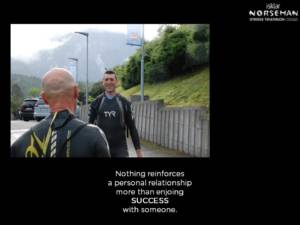Where Are You?
Here a few questions that will help you gain a better understanding of where you are in this dimension of your leadership:
- In the leadership training you have received, how much emphasis was placed on the value of your own subjective and personal experience?
- Have you ever made a gut leadership decision that did not seem to be logical but ultimately proved to be successful?
- Conversely, have you ever ignored your gut and relized later that it was a mistake to do that?
- Has your own experience with emotions in leadership indicated to you that feelings are a help or a hindrance to you reaching your goals?
- Do those in your leadership environment tend to trust objective information over internal information?
- If you were asked to describe how you use your inner self to lead, how clearly would you be able to explain it?
- When you are under pressure to produce results, do you tend to rely on hard facts and dismiss the subjective elements?
If your responses to these questions landed on the objective side of things, that is normal for most leaders. There are good reasons for this. You have a responsability to create good outcomes and to help people achieves them. The outcomes are generally measurable, such as profits, stock value or some growth metric. However, you ignore what is beyond reason to your peril. Leaders who don’t pay attention to the subjective will miss a great deal of importance, ranging from an emotional response (Emotional Intelligence). Missing this information can affect the quality of your judgments and decisions.
There is another reason most leaders answer the above questions on the objective side, and it is that the belief that subjective world slowsdown your edge, gets you off focus, or make you become too touchy-feely, or it is simply fear of emotions.

Scan Your Inner World
The simplest way to understand how you can use your inner world, the world beyond the reason, is to look at it in the same way you look at how you get information from external sources. Leaders are information junkies, and they need to be. Your are constantly scanning the horizon to look trends, the future, opportunities, threats, and people. Similarly, you also need to be able to do an interior scan that is, you need the skill to access what is going on inside you. The more information you have about your inner world generally the better you can decide and lead.
You most likely become a leader for some reason that was beyond reason. Your WHY? is beyond your Cognitive Intelligence (QI). Most of us don’t start out in life thinking. It’s more likely that something inside you gradually came alive the more you grew, learned, and interacted with people.

Dealing with the subjective world has everything to do with producing good results. It is an essential aspect of your own success and your ability to help others succeed.

VALUES
- It is important to have values
- It is important to have the right values
- It is important for your values to be from inside you
Your leadership, as well as your life, will reflect your values, for good or for bad.
Your values are beyond reason. That is, they are true and absolute for you, whether or not you think about them. Your values are simply aspects of reality that are guides for you. Your inside life is the repository of your values, so we begin with values because most of your life springs from them. Your values are the bedrock of your identity.

What Are Values?
The word value basically means “worth”. A value is something that you determine has a great deal of worth. So your values are those realities you believe in at the deepest level, so much so that they dictate your decisions and your leadership, even at your own risk.
Experts today consider values to be critical to success. Organizations spend a great deal of time working out the values that best fit their mission and context. Few examples:
- Treating people well
- A quality of product
- Customer service
- Innovation
- The best for less
- Excellence
- Making the organization a safe place for growth
The values of a group work best when they reflect the values of leader. Organizational values help guide the mission, but personal values are ultimately where organizational values are derived from. As a leader, your personal values are about how you look at life, not just your organization. They are broader and more universal. They operate in business, in life, in love, in family. As you look at the examples below, you can see how personal values define the organizational ones:
- Love
- Caring for the welfare of others
- Truthfulness
- Allowing others choices
- Fairness
- Taking ownership
- Personal integrity
- A commitment to reality

